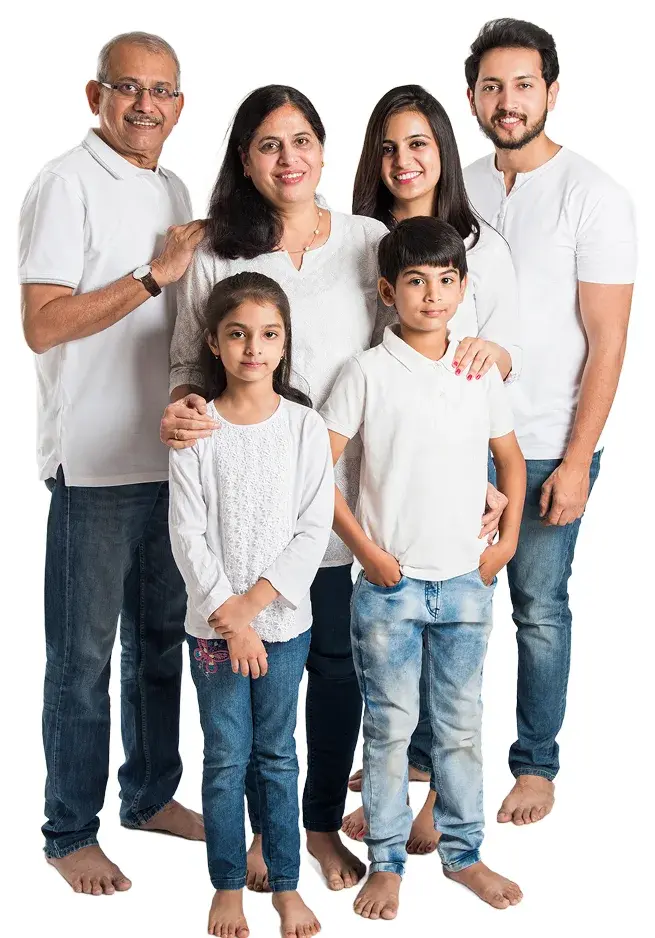Discover advanced Rectal Cancer surgery solutions to relieve pain and restore comfort. Our expert team specializes in minimally invasive procedures, ensuring effective treatment for corns and related foot conditions to improve your quality of life.
Book Your Free Second Opinion
30k+
Surgeries Done
50k+
Departments Treated
150k+
Conditions Treated
3k+
Specialist Doctors
200+
Cities
Rectal Cancer Introduction
Rectal cancer is a serious medical condition that requires specialized care from healthcare professionals known as colon and rectal surgeons. These surgeons are highly skilled and experienced in both surgical and non-surgical treatments for diseases affecting the colon, rectum, and anus. To become board-certified, these surgeons undergo extensive training in general surgery and colon and rectal surgery. Experts in the field, colon and rectal surgeons are equipped to manage a wide range of conditions, including both benign and malignant diseases of the colon, rectum, and anus. They are proficient in conducting screening examinations to detect potential issues early on and are capable of performing necessary surgical interventions when needed. If diagnosed with rectal cancer, patients can rely on the expertise of these specialized surgeons to provide comprehensive care and treatment tailored to their specific needs.
What You Get From MediBuddy
Get an Expert Second Opinion
Find Top Cashless Hospitals
Find Surgery Cost Estimate
Verify Insurance Coverage
Why MediBuddy For Health Care

Enhanced Quality of Care
Constant support, a network of premium hospitals and top-tier surgeons.

End-to-End Management
Your only focus should be to go and get your procedure done. Leave the rest to us.

Continuous Guidance
Any problem you may face will be resolved with one phone call.

Easy financing support
We bring you the best deals, EMI options without compromising on quality
Types Of Rectal Cancer
Rectal cancer is categorized by the type of cells where the cancer begins within the rectum. The main types of rectal cancer are: 1. Adenocarcinoma: This is the most common type of rectal cancer, accounting for approximately 95% of cases. It originates in the glandular cells lining the inner walls of the rectum. 2. Squamous cell carcinoma: A less common type of rectal cancer that starts in the squamous cells, which are flat cells found in the lining of the rectum. 3. Neuroendocrine tumors: These tumors begin in the hormone-producing cells of the rectum and are relatively rare compared to adenocarcinoma. 4. Gastrointestinal stromal tumors (GISTs): Another rare type of rectal cancer that develops in the interstitial cells of Cajal, which are found in the walls of the digestive tract. Understanding the different types of rectal cancer is crucial for proper diagnosis and treatment planning. Each type may require a specific approach to treatment, depending on its characteristics and stage of development.
Stages Of Rectal Cancer
Stages of Rectal Cancer: Rectal cancer staging helps determine the extent of the cancerous cells' spread and guides treatment decisions. The stages are typically classified as follows: - Stage 0: Known as carcinoma in situ, cancer cells are only found in the inner lining of the rectum. - Stage I: Cancer has grown beyond the inner lining but hasn't spread to nearby lymph nodes or organs. - Stage II: Cancer has invaded deeper layers of the rectal wall, but still not spread to nearby tissues or organs. - Stage III: The cancer has spread to nearby lymph nodes, but not to distant sites. - Stage IV: The most advanced stage where cancer has spread to distant organs or tissues, such as the liver or lungs. Staging helps doctors plan appropriate treatment strategies tailored to each patient's specific circumstances. Additional tests and imaging may be required to accurately determine the stage of rectal cancer. Early detection and proper staging are crucial for successful treatment outcomes.
How Common Is Rectal Cancer
Rectal cancer is a significant health concern worldwide. Rectal cancer accounts for approximately 10% of all colorectal cancer cases globally. The incidence of rectal cancer tends to increase with age, with the majority of cases diagnosed in individuals over the age of 50. Men are slightly more likely to develop rectal cancer compared to women. Risk factors for rectal cancer include a family history of the disease, a personal history of colorectal polyps or inflammatory bowel disease, a diet high in red and processed meats, obesity, and a sedentary lifestyle. Early detection and prompt treatment of rectal cancer are crucial for improving outcomes and increasing survival rates. Screening tests such as colonoscopies and routine physical examinations play a key role in detecting rectal cancer at an early stage when it is most treatable. Despite advancements in treatment options, rectal cancer remains a significant public health challenge, highlighting the importance of awareness, prevention, and regular screening for this disease.
Complications Of Rectal Cancer
Complications of Rectal Cancer: Rectal cancer, like other types of cancer, can lead to various complications that can impact a patient's quality of life and overall well-being. These complications may arise from the cancer itself or as a result of treatments for the disease. It is important for patients and healthcare providers to be aware of these potential complications in order to provide comprehensive care and management. Some common complications associated with rectal cancer include: 1. Bowel obstruction: Tumors in the rectum can sometimes grow to the point of blocking the intestines, leading to bowel obstruction. This can cause symptoms such as abdominal pain, bloating, constipation, and vomiting. 2. Bleeding: Rectal cancer can cause bleeding from the rectum, which may manifest as blood in the stool or rectal bleeding. This can result in anemia and fatigue. 3. Incontinence: Surgery or other treatments for rectal cancer can sometimes disrupt the normal function of the rectum and anus, leading to issues with bowel control and fecal incontinence. 4. Fistulas: In some cases, rectal cancer can cause the formation of abnormal passageways (fistulas) between the rectum and other nearby organs or the skin. This can result in infections and other complications. 5. Lymphedema: Surgery or radiation therapy for rectal cancer can disrupt the lymphatic system, leading to lymphedema, a condition characterized by swelling in the affected area, typically the legs. 6. Sexual dysfunction: Rectal cancer and its treatments can impact sexual function and intimacy, leading to issues such as erectile dysfunction or changes in libido. 7. Psychological effects: Coping with a diagnosis of rectal cancer and undergoing treatment can take a toll on a patient's mental health, leading to anxiety, depression, and other psychological issues. It is essential for healthcare providers to monitor patients for these complications and provide appropriate interventions to manage symptoms and improve quality of life. Patients should communicate openly with their healthcare team about any concerns or symptoms they may be experiencing.
When To See A Doctor For Rectal Cancer
When to see a doctor for Rectal Cancer: - It is essential to consult a healthcare provider if you experience any of the following symptoms that could indicate rectal cancer: - Persistent rectal bleeding or blood in the stool - Changes in bowel habits such as diarrhea, constipation, or narrowing of stool - Unexplained weight loss - Chronic abdominal discomfort or pain - Feeling of incomplete bowel movements or the urge to have a bowel movement after having one - Weakness or fatigue - If you have a family history of rectal cancer or a personal history of inflammatory bowel disease, it is crucial to seek medical advice for screening and early detection. - Early diagnosis and treatment play a vital role in improving the prognosis of rectal cancer, so do not hesitate to see a doctor if you notice any concerning symptoms or risk factors.
Meet Our Doctors

Dr Shambhav Chandra
Proctology
12 Years
Book Free Consultation

Dr Anubhav Sangwan
Proctology
10 Years
Book Free Consultation

Dr A K Kundlia
Proctology
20 Years
Book Free Consultation
Frequently asked questions


